By Dominic Evans
BEIRUT Sun Feb 9, 2014 3:14pm EST
(Reuters) – Six hundred people left the besieged ruins of rebel-held central Homs on Sunday, escaping more than a year of hunger and deprivation caused by one of the most protracted blockades of Syria’s devastating conflict.
The evacuees, mainly women, children and old men, were brought out by the United Nations and Syrian Red Crescent on the third day of an operation during which the aid convoys came under fire and were briefly trapped themselves in the city.
Video footage from inside Homs showed scores of residents, carrying a few bags of possessions, rushing across an open expanse of no-man’s land towards 10 white vehicles with U.N. markings. Gunshots could be heard as they raced to the cars.
“The last vehicle has arrived and the total is 611 people,” Homs governor Talal Barazi told regional Arab broadcaster Al Mayadeen at a meeting point for evacuees outside the city.
The Red Crescent confirmed that around 600 people were evacuated and said 60 food parcels and more than a ton of flour were delivered to the Old City.
Barazi and Red Crescent officials said they were working to extend the operation beyond Sunday, the final day of a fragile and frequently violated three-day ceasefire in the city.
Some of those who came out were men of fighting age who were not originally eligible to leave, Barazi said, but they had agreed to hand themselves over to police and judicial authorities and could win their freedom through amnesty.
Authorities suspect all men of fighting age to be part of rebel forces fighting to overthrow President Bashar al-Assad.
Assad’s authorities and rebel fighters have traded accusations of responsibility for attacks on Saturday which stranded the joint United Nations and Red Crescent team in central Old Homs for several hours after dark on Saturday.
The convoy was targeted as the relief workers were handing over food and medical supplies in the district where the United Nations says 2,500 people had been stranded by an ever-tightening military siege since the mid-2012.
The Red Crescent said one driver was lightly wounded but the rest of the team eventually left safely.
Video footage released by activists showed the team, led by U.N. humanitarian coordinator in Syria Yacoub el Hillo, taking refuge on Saturday in a basement while explosions rocked the rubble-strewn, devastated streets above them.
In another video filmed inside Homs on Saturday, Hillo said the aid supplies, including food parcels, medicines and hygiene kits, were just a drop in the ocean when set against the conditions endured by people trapped for months on end.
“When I look around me and see the level of need, and suffering of all – especially the children, the women and the elderly – let me say that even though it’s a significant amount of medical and nutritional aid, it’s still just a drop,” he said. “But let’s start with this drop.”
On Friday, the first of the planned three-day humanitarian operation in Homs, 83 women, children and elderly men were evacuated, significantly fewer than the 200 which the city governor had predicted.
Many showed signs of malnutrition, the United Nations said.
BARREL BOMBS IN ALEPPO
Syria’s conflict has killed 130,000 people, driven millions from their homes and devastated whole city districts – particularly in Homs, a centre of protest when the 2011 uprising against 40 years of Assad family rule first erupted.
The evacuation of civilians and delivery of aid was the first concrete, though modest, result of talks launched two weeks ago in Switzerland to try to end the civil war.
At the Geneva peace talks, which resume on Monday, international mediator Lakhdar Brahimi has been pushing for agreement on aid deliveries and prisoner releases, hoping progress on those issues could build momentum to address the far more contentious question of political transition.
Assad’s government has rejected out of hand any surrender of power in Geneva, and on the ground his forces have made gains while rival rebel forces battle each other in the north and east of the country.
If anything the scale of violence – including internecine rebel fighting, clashes with Assad’s forces and government bombardment – has escalated since the delegates held their first face-to-face meeting just over a fortnight ago.
The Syrian Observatory for Human Rights, an anti-Assad monitoring group, said that 304 people were killed across the country on Saturday, including more than 100 civilians.
And in a sign of deep skepticism towards peace talks shared by the opposing parties inside Syria, neither the authorities nor the activists in Homs credited the Geneva talks for the weekend evacuations and aid deliveries.
Homs governor Barazi said the operation had been planned months ago but had been hit by delays, while several Homs activists – angered by a second day of bombardment which killed five people – bitterly criticized the Geneva negotiations.
“Today we have five martyrs and yesterday we had five,” one activist said, pointing to a row of corpses being prepared for wrapping in burial shrouds. “Every day the world sees this regime’s crimes and it remains silent.”
On Sunday, activists reported at least 11 people were killed in the northern city of Aleppo when helicopters dropped barrel bombs on rebel-held neighborhoods.
Video footage purporting to show the aftermath of one such attack in the Haidariya district showed at least nine corpses, including one child, scattered across a wide highway, flooded by a broken water pipe.
Cars were still on fire and black smoke rose from the flames. Wounded men were carried into ambulances and one man could be seen carrying a severed leg from the scene, as women screamed in grief.
(Editing by Andrew Heavens)
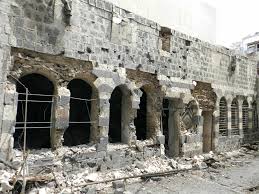
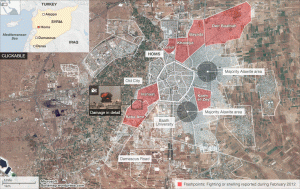
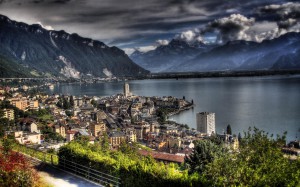
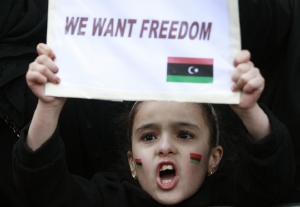
![global_economic_crisis_thumb[4]](http://strangetimes.lastsuperpower.net/wp-content/uploads/2011/01/global_economic_crisis_thumb4-300x300.jpg)
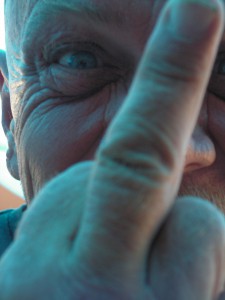
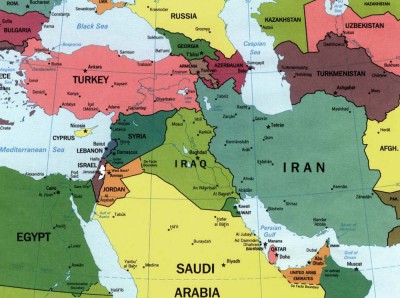
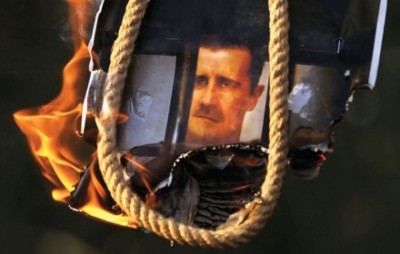
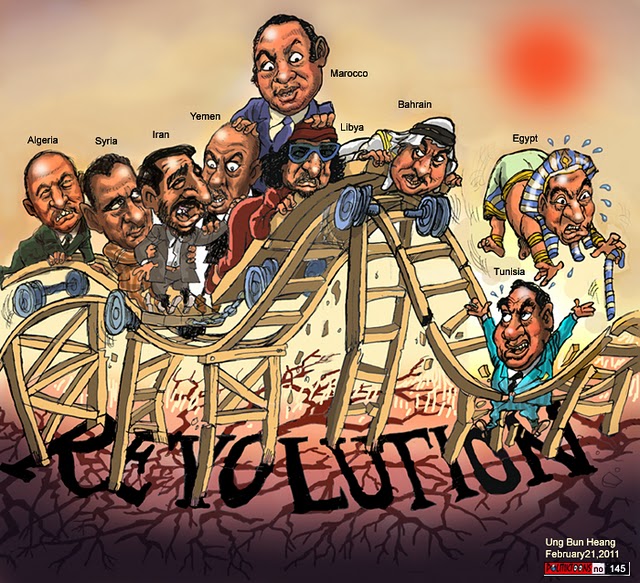

Recent Comments